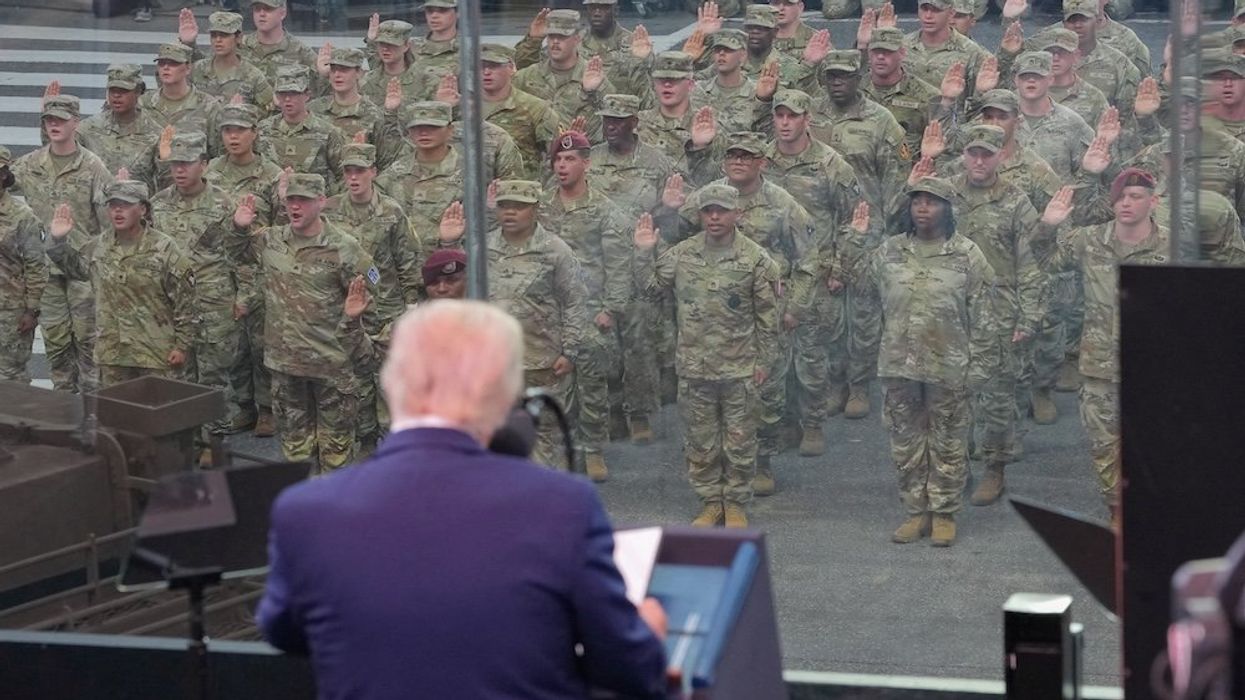Even though President Donald Trump has been more frequently posting suggestions that the U.S. may be about to enter into another war in the Middle East, one former Republican congressman is calling attention to a power Congress can use to constrain him.
On Tuesday, former Rep. Justin Amash (R-Mich.) — who served in the House of Representatives between 2011 and 2021 — posted a lengthy tweet about the War Powers Resolution (50 U.S.C. §§ 1541-1550). He specifically called on Congress to pass the resolution in order to stop Trump from taking any military action for 60 to 90 days without express approval from the legislative branch. Reps. Ro Khanna (D-Calif.) and Thomas Massie (R-Ky.) are cosponsoring one such resolution, and are calling on their colleagues to support it.
"If only more people would read it," Amash tweeted.
READ MORE: 'Pulled the rug out from under us;': Trump country left reeling after he cancels 'very good program'
Amash noted that even though the president of the United States is the commander-in-chief of all U.S. armed forces, the text of the War Powers Resolution explicitly states that a president's Constitutional authority over the military can be "exercised only pursuant to (1) a declaration of war, (2) specific statutory authorization, or (3) a national emergency created by attack upon the United States, its territories or possessions, or its armed forces." And he added that Article I of the U.S. Constitution makes it clear that only Congress has the ability to declare war.
"Of the three cited authorities, not one indicates a presidential power to take unilateral (without Congress's approval) offensive military action," Amash wrote.
The former Michigan congressman explained that the three powers outlined in the resolution pertaining to a president's authority to deploy the military unilaterally require "(1) a declaration of war, (2) specific statutory authorization or a sudden unforeseen attack on the United States (happening too quickly for Congress to meet) necessitating immediate action to protect Americans or (3) a national emergency created by attack upon the United States, its territories or possessions, or its armed forces." Absent those circumstances, the president cannot officially declare war.
"The War Powers Resolution does not confer any new authority on the president to take offensive military action without congressional approval — nor could it under our Constitution," he wrote. "It instead checks the president when, as the Framers contemplated, the president introduces our Armed Forces into hostilities to repel a sudden attack."
READ MORE: (Opinion) This most dangerous man in government right now isn't Trump


